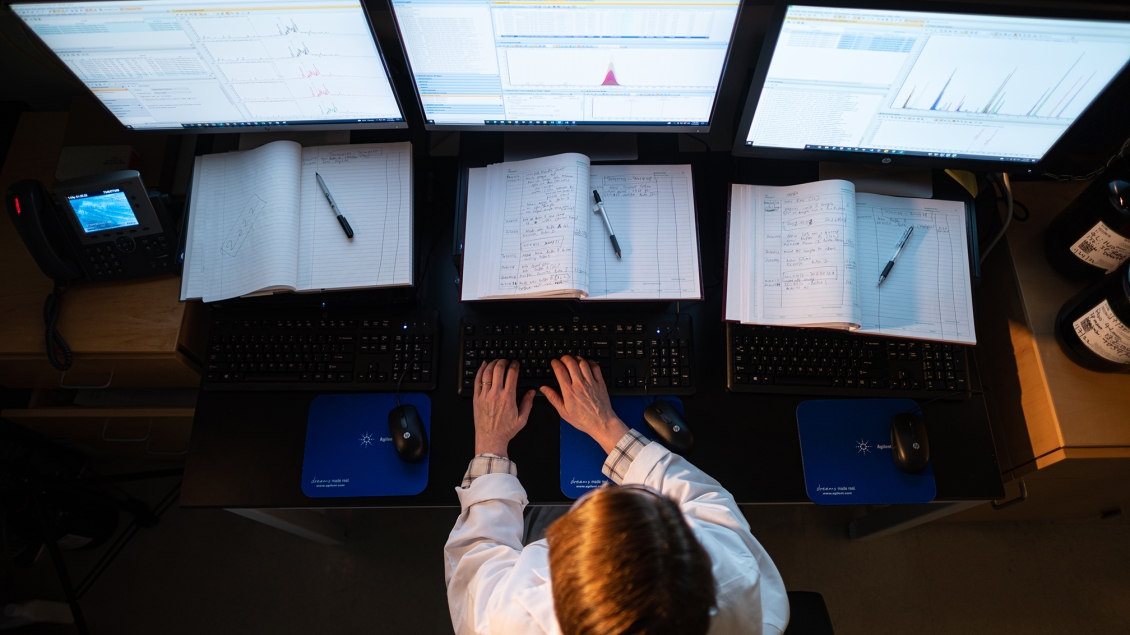
We offer a variety of tools to support metabolomics research and education.
The Metabolomics Core provides access to a variety of educational opportunities for students, fellows, and faculty in the field of metabolomics research. Along with educational opportunities, we have compiled resources for small and larger Pilot/Feasibility (P/F) grants to stimulate innovative efforts to incorporate metabolomics into basic, translational, and clinical research protocols.
Whether you’re looking for internal funding for a pilot or feasibility study, or just need recommendations on funding resources (internal or external), here are some other useful sites.
Below is a list of Metabolomics Core video playlists from past Summer Workshops. These playlists are hosted on the Metabolomics Core YouTube channel. The channel features both short, scripted videos, and full-length lecture-style talks. Video topics include metabolomics workflows, study design, bioinformatics tools, fluxomics, lipidomics, and much more.
The Michigan Regional Comprehensive Metabolomics Resource Core (MRC2) is presented at a four-day Metabolomics Workshop, May 8-11, 2017. This workshop was intended for investigators seeking a solid foundation to expand their research using metabolomics.
Sessions included:
- Study design
- Sample collection
- Analytical methods
- Data processing, statistical analysis, and metabolite identification
- Exploratory analysis with bioinformatics tools
- Case study applications
- Hands-on data analysis training, including statistical analysis with
Metaboanalyst and R, and bioinformatics data analysis and visualization with Metscape.
The workshop allowed attendees to:
1. Understand the principles of the analytical methodologies and data analysis techniques used in metabolomics.
2. Use this knowledge to incorporate metabolomics into your research.
3. Understand the reasoning behind data processing and statistical analysis.
4. Gain a working familiarity with bioinformatics tools for exploratory analysis.
The Michigan Regional Comprehensive Metabolomics Resource Core (MRC2) presented at a four-day Metabolomics Workshop, on May 9-12, 2016. This workshop was intended for investigators seeking a solid foundation to expand their research using metabolomics.
Sessions included:
- Study design
- Sample collection
- Analytical methods
- Data processing, statistical analysis, and metabolite identification
- Exploratory analysis with bioinformatics tools
- Case study applications
- Hands-on data analysis training, including statistical analysis and data visualization
After attending the workshop, participants were able to:
1. Understand the principles of the analytical methodologies and data analysis techniques used in metabolomics.
2. Use this knowledge to incorporate metabolomics into your research.
3. Understand the reasoning behind data processing and statistical analysis.
4. Gain a working familiarity with bioinformatics tools for exploratory analysis.
This event was held on June 23, 2014 - June 26, 2014, at Palmer Commons in Ann arbor.
Kellogg Eye Center 2015 Metabolomics Summer Workshop
The Michigan Regional Comprehensive Metabolomics Resource Core (MRC)2 presented at a four-day Metabolomics Summer Workshop on June 15-18, 2015.
This workshop was intended for investigators seeking a solid foundation to expand their research using metabolomics.
Sessions included:
- Study design
- Sample collection
- Analytical methods
- Data processing, statistical analysis, and metabolite identification
- Exploratory analysis with bioinformatics tools
- Case study applications
- Hands-on training with pathway and heatmap tools
After attending the workshop, attendees were able to:
1. Identify and describe the primary concepts related to getting good results from metabolomics.
2. Recognize and know how to address metabolomics opportunities and challenges in your own research.
3. Understand the reasoning behind data processing and statistical analysis.
4. Gain a working familiarity with bioinformatics tools for exploratory analysis.
View this playlist containing past presentations from the 2013 Metabolomics Summer Workshop.